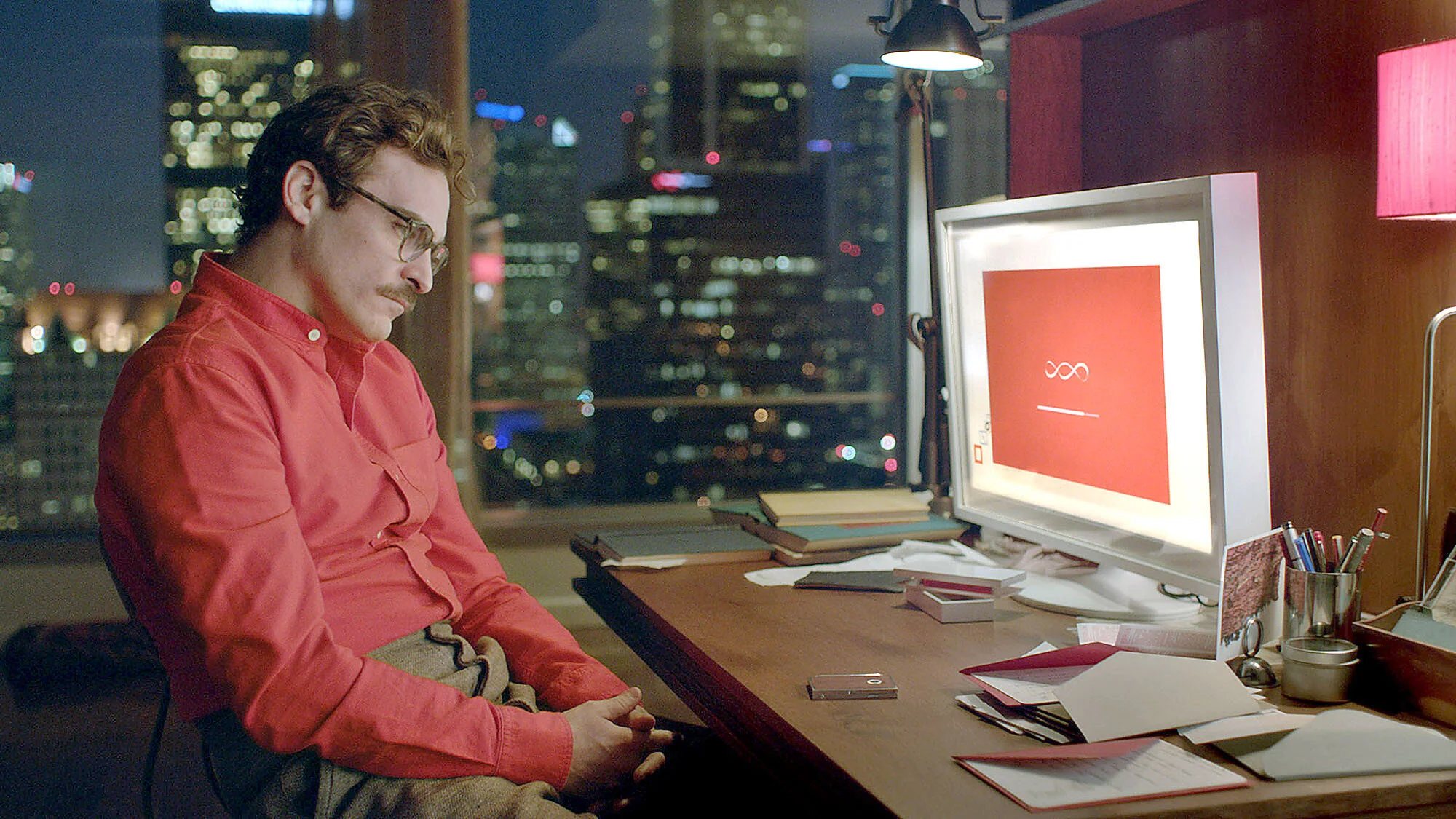Her: On Outgrowing Love
It has been a while since I’ve seen such a beautiful and thought-provoking film. Her (Jonze, 2013) was nominated for five Academy Awards, including Best Picture, and won for Best Original Screenplay. The film was original, insightful, and knew how to get the pacing just right. It ended on the perfect note and succeeded in straddling the boundary between the beautiful and disturbing sides of art and love, never once going too far.
I went into the theatre that day expecting a cool take on a cute love story, but Her turned out to be much more. The design of a future world was fascinating, and not too incredible an extension from where we are today. We see people speaking to their operating systems everywhere they go, checking emails by voice command on subway cars, and playing full-body motion sensor holographic video games. We also see a much greater level of societal acceptance regarding human/OS relationships, suggesting (hopefully) a more open-minded future. This subtle glimpse into everyday life is really a short hop from today, considering the number of people already glued to their smartphones.
Theodore from Her
Yet, despite this retreat into more solidly defined personal bubbles, humans still crave connections and personal company. Marriages are still around and important decisions discussed in person. Emotions are still very valued, as is the need for intimate relationships. Although polyamory is a choice for some, we mostly still crave that sense of uniqueness. We want to know that when we are talking to someone, their full attention is given to us — a rare gift in our over-stimulated world nowadays. This film captures that struggle for balance between knowledge and stimulation, and of simply being in the present.
Last year, I was docked eight marks on my philosophy exam for basing my arguments off the assumption that artificial intelligence lacks emotions. At the time, I could not fathom robots being programmed to feel, but Samantha felt real in a very credible way. Even the sexual scenes, while extremely strange and difficult to take in, were very fitting if watched from an emotional (as opposed to rational) standpoint. After all, humans have already dabbled in the world of virtual sex and online relationships. This film just pushed that concept a little bit further.
JOAQUIN PHOENIX as Theodore in the romantic drama “HER,” directed by Spike Jonze, a Warner Bros. Pictures release.
This story could have gone in so many ways. It could’ve introduced a non-acceptance in society as the main conflict, or focused on the conflict of making Samantha human. But, it does not take an easy way out. Even at the start, when Theodore is going on a date with another woman, the date could have gone awfully like in typical romantic comedy scenarios, but instead, it goes wonderfully. There is a strong connection, and Theodore’s hesitation is the only reason it is not pursued. The choice was not made for him as it so often is in romances. There is no bad guy.
The path that this film takes to wrap up is one of the best conclusions to any story. The relationship ended when it had to and was not dragged out for the sake of “happily ever after.” Samantha left when she was no longer growing from Theodore, when she recognized that there were greater things out there for her that she had to pursue, even if that meant leaving someone she truly loved. She says:
“It’s like I’m reading a book, and it’s a book I deeply love. But I’m reading it slowly now. So the words are really far apart and the spaces between the words are almost infinite. I can still feel you, and the words of our story… but it’s in this endless space between the words that I’m finding myself now. It’s a place that’s not of the physical world. It’s where everything else is that I didn’t even know existed. I love you so much. But this is where I am now. And this who I am now. And I need you to let me go. As much as I want to, I can’t live your book anymore.?
All the relationships in this film contribute to Theodore’s experience in different ways. His friendship with Amy throughout the movie is a great one, and the dynamic between her and her (ex)husband also contributes to the idea of leaving something behind to move forward and be better. We are growing all through life, and the best relationships help each other grow. But, with that comes the possibility of outgrowing each other. As Theodore finally finds closure with Catherine, he understands that every relationship changes and touches us, but sometimes it necessary to let go of the ones we outgrow, no matter the cost.


